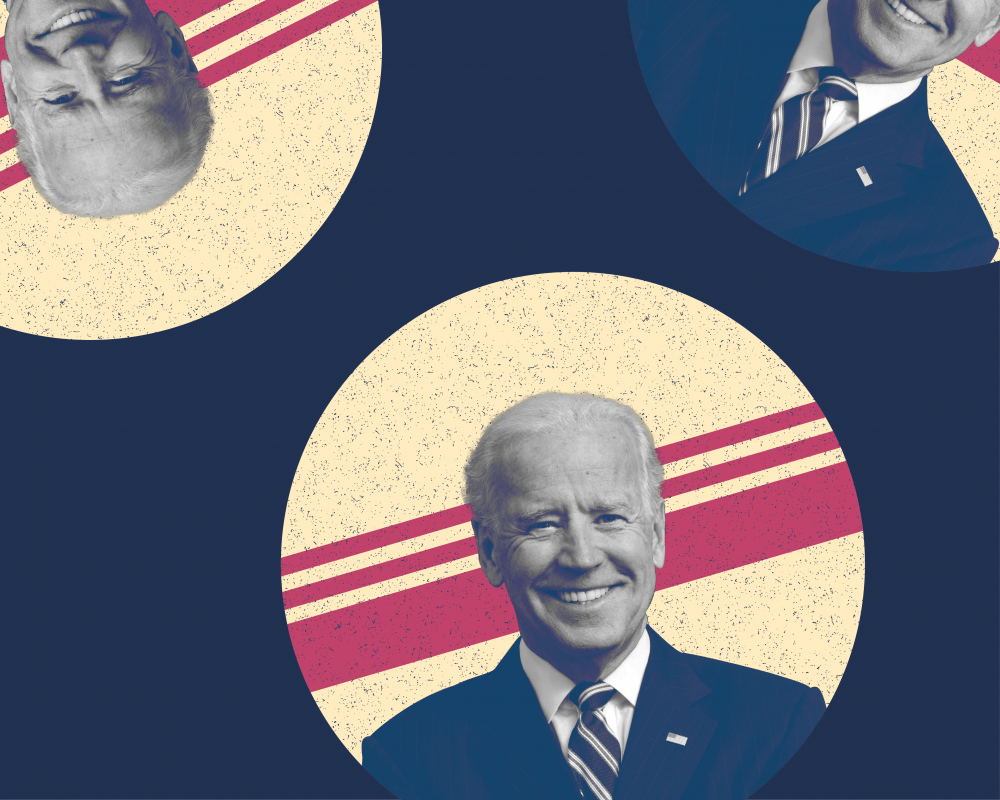Former Vice President and Penn Presidential Professor of Practice Joe Biden is expected to announce his plans for the 2020 presidential election in the coming weeks. When he visited Penn this Tuesday, Biden did not directly address whether he is going to run for president. Still, with more than four decades of political experience, Biden says he is “the most qualified person in the country to be president.” But his track record is flawed, and the Democratic party needs a new face to rally behind. We urge Joe Biden not to declare his candidacy for president.
With eight years in the White House and 36 years in the Senate, Biden would be the most experienced candidate in the Democratic primary. He’s run for president twice before, in 1988 and 2008 — although he failed to rally voters beyond a fifth-place finish in Iowa in 2008, and in the 1988 cycle ended his campaign amid several accusations of plagiarism. Biden’s experience also comes with decades of baggage.

Biden stands out among other frontrunners for his foreign policy experience. But unlike other current frontrunners, most of whom were not in Congress in the early 2000s, he voted to support President Bush’s invasion of Iraq. At the time, he was chair of the Senate Foreign Relations Committee. Also during his time in the Senate, Biden voted for the Defense of Marriage Act and supported various tough-on-crime laws.
Biden’s time as chair of the Senate Judiciary Committee may also prove to be a sticking point for Democratic voters in the #MeToo era. In 1991, Biden presided over questioning of Anita Hill as she testified to sexual harassment by now-Supreme Court Justice Clarence Thomas. Following the Kavanaugh hearings last fall, the New York Times reported that Biden privately complained he thinks it's unfair that Hill continues to hold him responsible for her mistreatment during the hearings.
Recent polling puts Biden far ahead of his potential Democratic primary opponents. But because it’s so early, this could quickly change as voters learn more about the pool of candidates. Hillary Clinton had higher favorability ratings than either President Barack Obama or Biden toward the end of her time as Secretary of State, but extensive media attention on her lengthy career in public service contributed to plummeting approval ratings. Similarly to how Clinton’s opponents emphasized her speeches at Wall Street firms, Biden could face criticism for having close ties to the financial institutions in his home state of Delaware.

Additionally, Biden’s current age at 76 years old would make him the second-oldest candidate in the Democratic primary, after Sen. Bernie Sanders (I-Vt.). His age might not affect his ability to carry out his duties as president, but the Democratic Party has historically performed better with young nominees.
SEE MORE FROM THE DAILY PENNSYLVANIAN EDITORIAL BOARD:
Penn should give Presidents Day off
Dining halls should increase hours and food options to promote accessibility
Last year’s midterm elections witnessed a surge in youth turnout, and more than two-thirds of voters under 30 years old voted for a Democratic candidate. The Democratic Party has shifted to the left since 2016 in part due to this age cohort, and Biden’s experience will make it difficult for him to reinvent himself as progressive enough for today’s Democratic Party. Further, the 2020 Democratic primary electorate is expected to be more diverse than ever before, and Biden will have to justify his candidacy over those of highly qualified women and people of color. One of these other candidates may better represent the changing values and demographics of the Democratic Party.
Biden’s candidacy may only damage his legacy as various controversies are dredged up from his 46-year career in politics. He has lost twice before, and there is nothing that suggests this time around will be different. In other words, the third time isn’t likely to be the charm. Biden should not run for president in 2020.
Editorials represent the majority view of members of The Daily Pennsylvanian, Inc. Editorial Board, which meets regularly to discuss issues relevant to Penn's campus. Participants in these meetings are not involved in the reporting of articles on related topics.
SEE MORE FROM THE DAILY PENNSYLVANIAN EDITORIAL BOARD:
Penn should give Presidents Day off
Dining halls should increase hours and food options to promote accessibility









